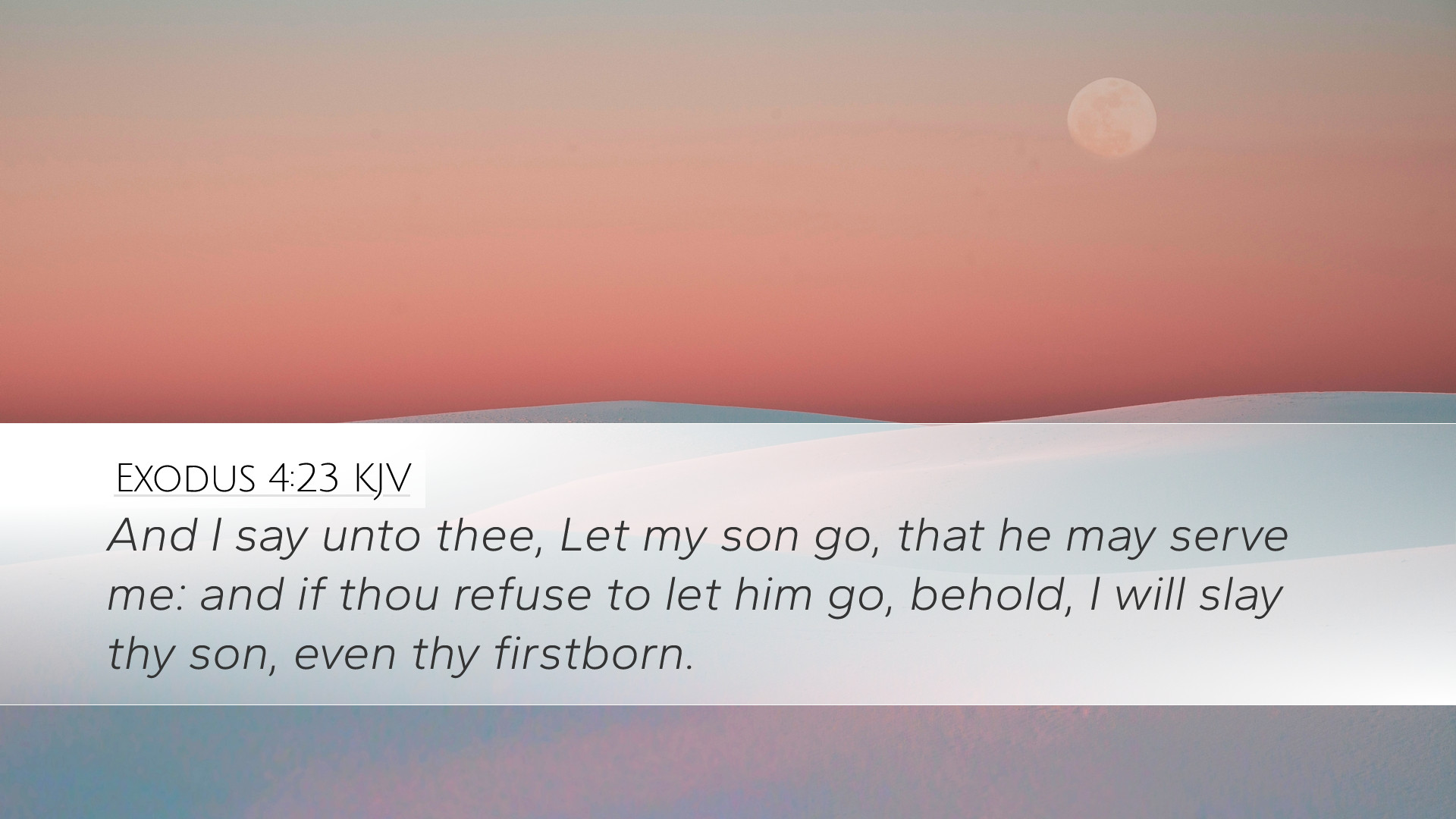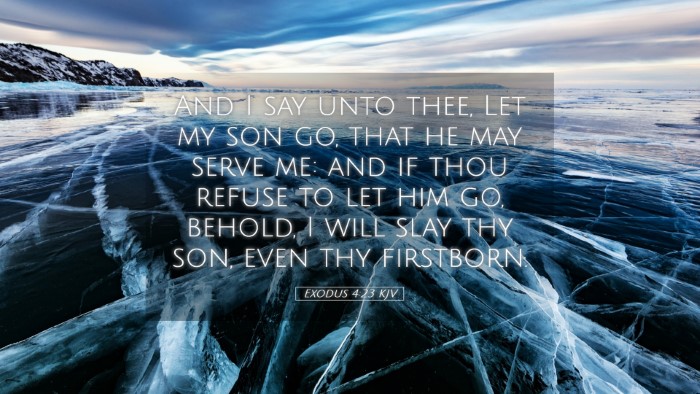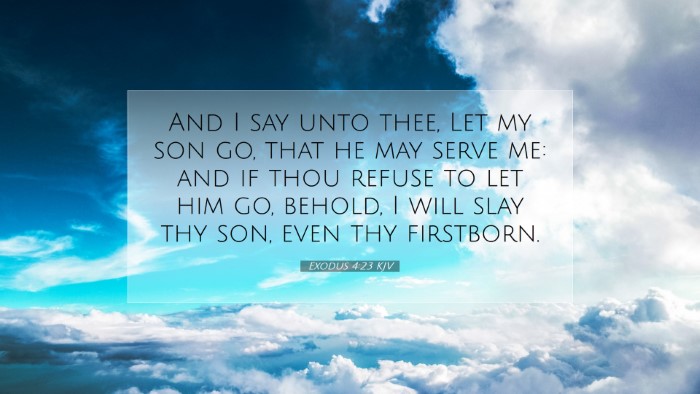Exodus 4:23 Commentary
Bible Verse: "And I say unto thee, Let my son go, that he may serve me: and if thou refuse to let him go, behold, I will slay thy son, even thy firstborn."
Introduction
The verse in Exodus 4:23 is a pivotal moment in the divine narrative concerning the liberation of the Israelites from Egyptian bondage. The command given by God to Pharaoh emphasizes the central theme of God's sovereignty over nations and His intent to deliver His people. This commentary synthesizes insights from public domain sources to explore the theological and historical significance of this proclamation.
Contextual Setting
Historical Context: This verse occurs in the larger narrative of the Exodus, where Moses is called by God to lead the Israelites out of slavery. Understanding the oppression faced by the Israelites under Pharaoh’s rule is crucial for grasping the urgency of God's message.
Theological Context: The verse reveals God's character as both a protector of His people and a judge of nations that oppose His will. God asserts that Israel is His "son," indicating a familial relationship that implies special care and chosen status.
Divine Command
God’s Authority: The phrase, "Let my son go," commands Pharaoh to release the Israelites, signifying that God considers Israel as His firstborn, which underscores the seriousness with which God regards the oppression of His people. Matthew Henry comments on this, stating that God’s demand was not merely a request but an assertion of God’s sovereign right over His people.
- Albert Barnes: notes that this call to "let my son go" is a divine assertion of ownership and authority, emphasizing that refusal will bring severe consequences.
- Adam Clarke: elaborates that the term "son" signifies Israel’s privileged status and unique relationship with God, reinforcing their identity as a nation under divine protection.
Consequences of Rejection
The grave threat that accompanies the command—“I will slay thy son, even thy firstborn”—reveals the intensity of God’s judgment upon those who oppose His will. This aspect deserves careful theological reflection:
- Judgment: The potency of God's ultimatum reflects His commitment to justice and the protection of the downtrodden. Both Matthew Henry and Barnes discuss that such a warning serves as a terrifying reminder of the consequences that arise from disobedience to God's commands.
- Foreshadowing: The death of the firstborn serves as an ominous precursor to the Plagues of Egypt, specifically the final plague that culminated in the Passover. Clarke highlights how this act reveals both God's power and His mercy as He later provides a means of redemption through the Passover lamb.
Theological Implications
This verse holds significant theological implications not just for the Israelites of that time, but for all who reflect upon it:
- God's Sovereignty: The episode is a profound declaration of God's authority over the plans of man and nations, reminding believers of His ultimate control over all circumstances.
- The Nature of God’s Justice: God's warning illustrates that while He is merciful, He is also just. Sin has consequences, and disobedience leads to divine retribution.
- Inclusivity of God's Call: The reference to a "son" echoes the biblical theme of divine adoption and parental care, showcasing God’s intent for His people to serve Him freely.
Practical Applications
For pastors, theologians, and students, the reflections provided through this verse can be applied in several significant ways:
- Understanding Ministry: Those in ministry can draw parallels between Moses' call and their own, recognizing that fulfilling God’s commands may require courage against earthly powers.
- Assurance in God’s Plan: Believers can find comfort in knowing that God intervenes in history to deliver His people, motivating faith and perseverance through trials.
- Evangelistic Urgency: The urgency of the message to Pharaoh serves as a reminder for evangelism; the necessity of proclaiming God's mercy and the danger of neglecting His call for reconciliation.
Conclusion
Exodus 4:23 vividly encapsulates the tension between divine authority and human rebellion. The weight of God’s words to Pharaoh underscores His role as a deliverer and judge, making it a relevant scripture for all who engage in the study of the Word. In contemplating this verse, readers are reminded of God's unyielding commitment to His people and the seriousness of His commands. By studying these insights, we deepen our understanding of God's character and His intimate relationship with His chosen ones.


